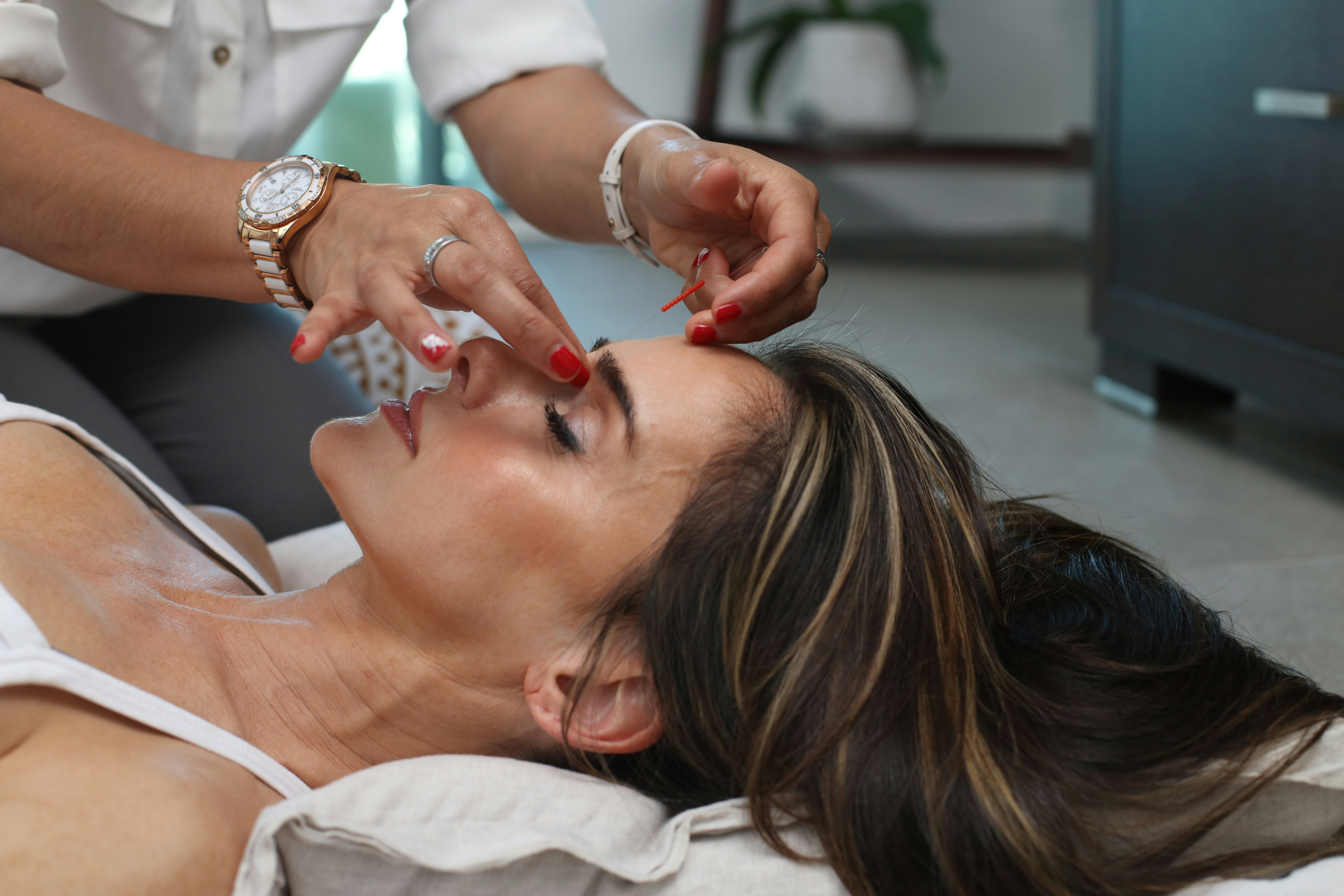If you’re looking for holistic alternatives to modern medicine, acupuncture is a great place to start. It sounds scary and definitely looks scary (to some). After all, who willingly sits for hours to have small needles placed into your skin, all over your body? As intimidating as it looks, acupuncture is very relaxing and not painful at all. Seeing as the practice has been around for 2,500 years, those who study and perform it may be on to something. People claim that it’s a “miracle” treatment, helping relieve a wide variety of problems from depression to indigestion.
Curious about how acupuncture could improve your quality of life? We don’t blame you! Here’s everything you need to know about it.
What is acupuncture?
Traditional Chinese Medicine explains that health is the result of a harmonious balance between “yin” and “yang” of the life force known as “qi,” pronounce “chi.” When a person gets sick, it’s believed to be the result of an imbalance of these energies. Qi is said to flow through meridians or pathways throughout the body. These meridians and energy flows can be accessed through 350 different acupuncture points in the body. By inserting needles in various patterns and areas on the body, it’s believed to bring the energy flow back into proper balance.
What can acupuncture help with?
You may be interested in acupuncture as a treatment for a variety of conditions. If you have had trouble finding relief for headaches or chronic migraines, acupuncture could be a good option. There are countless ailments it’s said to help with, and here are just some examples:
- allergies
- back pain
- anxiety and depression
- menstruation cramps
- insomnia
- sprains
- hypertension
People claim that acupuncture is a cure-all miracle treatment, and while that has yet to be proven, it’s definitely on to something. There’s a reason it’s been around for over 2,000 years, and the more research that is done on acupuncture and its benefits, the more we’ll understand what it can do for us.

What to expect
For your first time, an acupuncturist will assess your conditions. Then, they will insert small, sterile, thin needles one at a time into the skin. They might offer some other self-care therapies, such as Chinese herbs. Depending on where the needles need to be placed, you could be asked to lay on your stomach, back, or side. You may feel a slight sting or tingly sensation when they’re inserted, and sometimes they may be stimulated with heat or electricity. The needles will be left in place for between five to 30 minutes. The amount of treatments needed depends on the conditions being treated. Sometimes one session is enough, sometimes multiple are needed.

How do I find an acupuncturist?
You can research certified practitioners in your area on the internet or check out the National Certification Commission in Acupuncture and Oriental Medicine’s website. There are some private health insurance policies that cover acupuncture now as well. If you’re not happy with your insurance coverage and are looking for a plan that may cover acupuncture costs, you can compare policies and extras with iSelect.
Along with acupuncture, try therapy.
If you’re experiencing an existential crisis, a treatment could help bring you some peace. You may find yourself worrying over things like what’s the meaning of life or feeling overwhelmed. Especially right now with COVID-19, times are uncertain and scary. If you already experienced anxiety and depression before the pandemic, the current situation can be particularly challenging. There are many options out there to find mental health help and WithTherapy is a great place to find the perfect therapist for you.
If you’re still unsure if acupuncture could benefit you, talk to your doctor about it.












